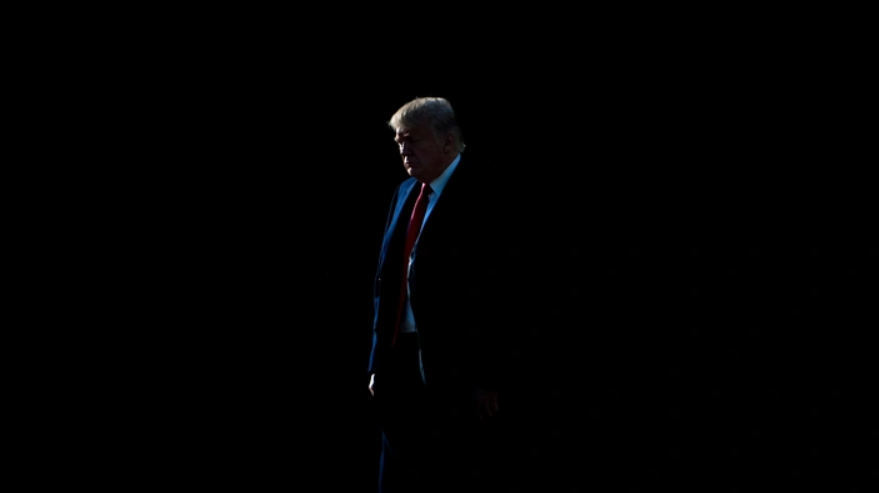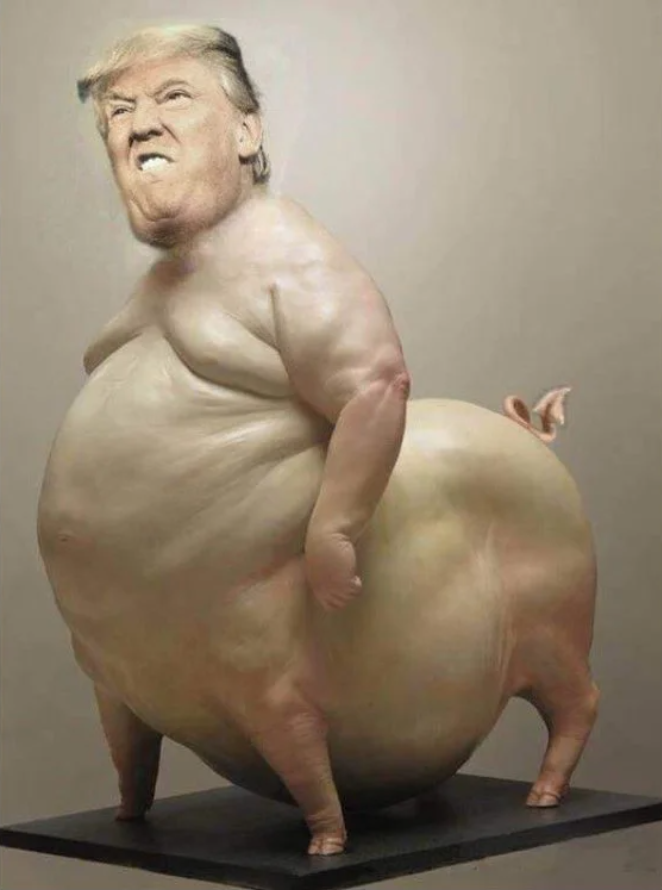Welcome to DU!
The truly grassroots left-of-center political community where regular people, not algorithms, drive the discussions and set the standards.
Join the community:
Create a free account
Support DU (and get rid of ads!):
Become a Star Member
Latest Breaking News
Editorials & Other Articles
General Discussion
The DU Lounge
All Forums
Issue Forums
Culture Forums
Alliance Forums
Region Forums
Support Forums
Help & Search
General Discussion
Related: Editorials & Other Articles, Issue Forums, Alliance Forums, Region ForumsBanish Trump to the Anticanon
A president’s behavior need not be precedent-setting.https://www.theatlantic.com/ideas/archive/2020/06/trump-anticanon/613366/

Tallying up the lengthy list of constitutional harms done by the Trump administration’s extraordinary deployment of National Guard troops and other federal agents to disrupt peaceful protests in Washington, D.C., earlier this month, it is hard not to include the fear that this president has set yet another precedent that could warp the nature of the American presidency. After all, what past presidents have done unquestionably shapes the way the presidency runs today, both in setting norms of day-to-day operations inside the executive branch, and in shaping how the public understands what behavior counts as “presidential.” Indeed, the Supreme Court has noted more than once that interpreting the words executive power under Article II of the Constitution without recognizing “the gloss which life has written upon them” would be a mistake. What presidents do can change the way the people and public officials alike understand what the Constitution permits. Do the recent events at Lafayette Square now count as part of the canon of presidential precedent?
The good news, such as it is, is that Trump’s actions need not necessarily have any such effect. From President Franklin D. Roosevelt’s executive order targeting Japanese Americans during World War II to President Richard Nixon’s decision to fire the special Watergate counsel, there is what we might call an executive-branch “anticanon” of sorts—conduct that has come to be so widely recognized as unacceptable in character, it has not produced any of the common precedential effects. No court relies on it as evidence of constitutional meaning. And neither presidents nor the public sees it as belonging to the defining norms of presidential behavior, save perhaps as part of a case study illustrating how no American president should behave.
So how does some presidential conduct become part of the anticanon, or more to the present point, how might Americans today help ensure that the attack at Lafayette Square comes to join it? As it turns out, unlike the decisions of the Supreme Court, presidential precedent is less born than made—or unmade, as the anticanon shows. And there is more than one way to unmake it. Formal legal rejection, for example, is not required. President Roosevelt’s Japanese American exclusion order was welcomed at the time with broad popular support, congressional inaction, and indeed formal approval by the Supreme Court. Nearly 30 years passed before Congress enacted a law aimed at preventing the future military detention of Americans in similar circumstances, closer to 40 before the civil-rights activist Fred Korematsu personally saw his record cleared, and more than 70 before the Supreme Court formally repudiated its initial decision (in 2018). But whether measured by public officials’ and scholars’ negative references or by the generations of American schoolchildren assigned to read Farewell to Manzanar, race-based internment had clearly entered the executive-branch anticanon long before then.
For the particular conduct to have resulted in punishment is also not necessary. The Nixon administration’s elaborate efforts to keep secret from Congress its air-bombing campaign in Cambodia—including falsifying military records—was the subject of intense constitutional criticism when it finally came to light. But the House Judiciary Committee tried and failed to include the air campaign among the articles of impeachment against Nixon. Instead, Congress enacted a new law, over the president’s veto, making clear that presidents were required to report to Congress all commitments of American forces abroad. Just more than a decade later, the Reagan administration attempted a similar brand of foreign-policy concealment, trading arms for hostages and funneling funds to a military venture in Nicaragua. This time, the resulting scandal triggered investigations engaging the public and all three branches of government. The special counsel’s investigation produced more than a dozen criminal indictments; Congress eventually passed legislation that further expanded reporting requirements; and the otherwise popular president saw a record drop in public approval. Significantly, President Reagan didn’t cite Nixon’s Cambodia precedent in his defense. Instead, he announced the creation of his own investigating commission, and later apologized. The Nixon crew had been spared direct punishment for Cambodia. But the presidential practice of hiding foreign military ventures from Congress had become anticanonical nonetheless.
snip
5 replies
 = new reply since forum marked as read
Highlight:
NoneDon't highlight anything
5 newestHighlight 5 most recent replies
= new reply since forum marked as read
Highlight:
NoneDon't highlight anything
5 newestHighlight 5 most recent replies
Banish Trump to the Anticanon (Original Post)
Celerity
Jun 2020
OP
Bank on it: If America elects another Rethug president, Trump's actions will again be canon.
KY_EnviroGuy
Jun 2020
#3
Response to Celerity (Original post)
morillon This message was self-deleted by its author.
Celerity
(54,006 posts)2. well, this statue maybe


captain queeg
(11,780 posts)5. Really does capture his essence. Which is totally repulsive.
KY_EnviroGuy
(14,770 posts)3. Bank on it: If America elects another Rethug president, Trump's actions will again be canon.
But yes, America is amazingly resilient in the long run.
Celerity, thanks for posting these pieces of history to remind us in these dark days........![]()
